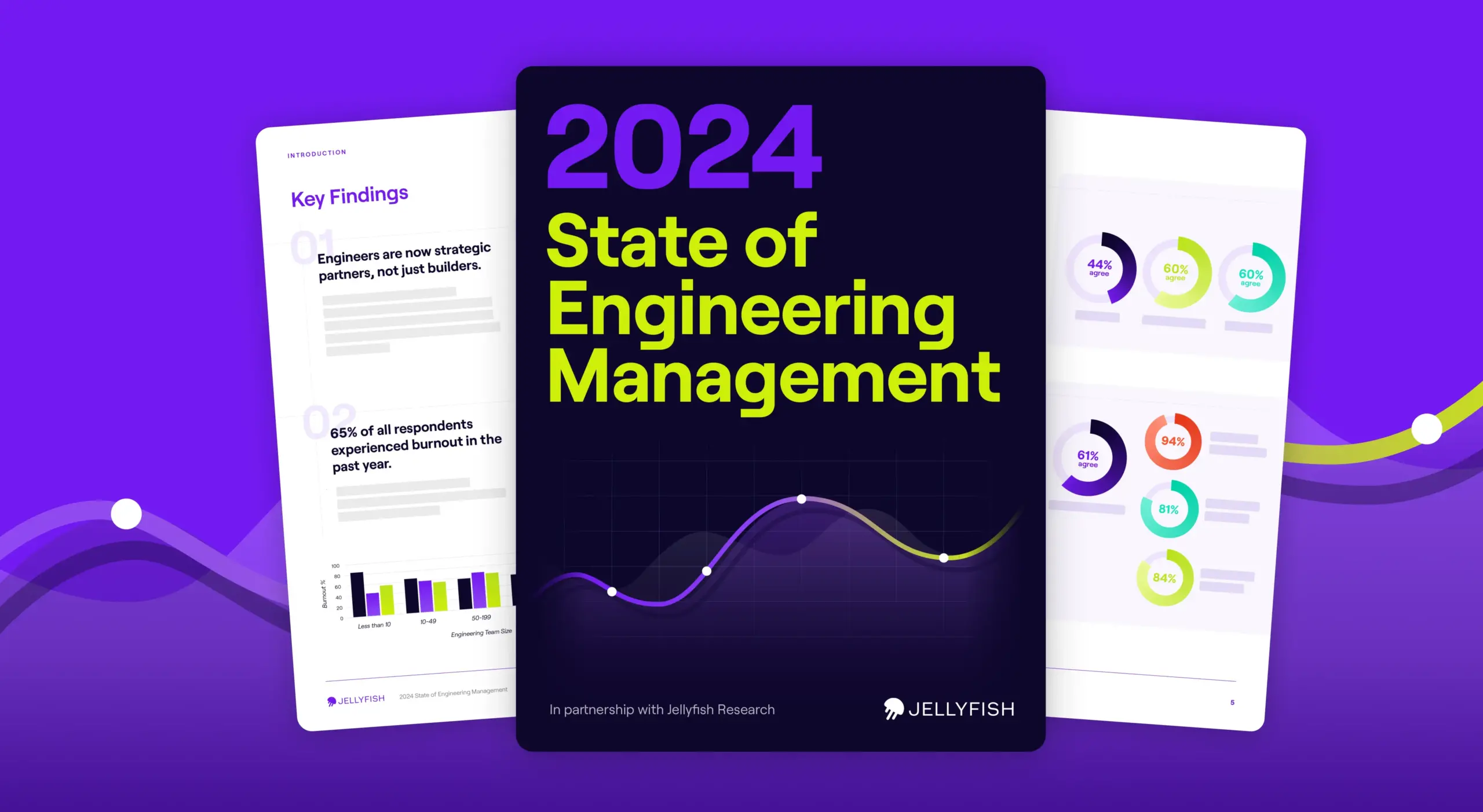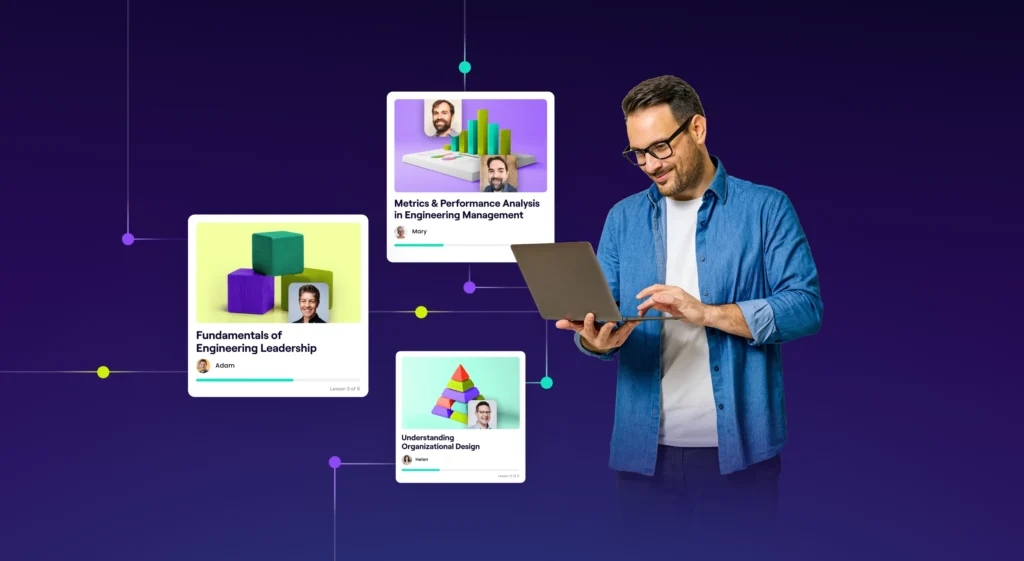For decades, engineers were expected to take orders and build products without shaping the business as a whole. Today, that’s no longer the case. Engineering leaders and their teams are now strategic partners, helping to guide strategy, grow revenue, and ensure the organization works as efficiently as possible. Jellyfish has tracked this evolution over the past five years through our annual State of Engineering Management Report.
This year, we aimed to see how engineering teams have evolved in the ways they organize, measure, and staff their work by surveying 604 CTOs, engineering leaders, managers, and ICs. Of course, we also paid attention to the arrival of generative AI coding tools. We discovered stark differences in the experiences of front-line engineers and their leaders, as well as varying predictions for how AI will shape engineering organizations in the months and years to come. Below are the key findings from the 2024 State of Engineering Management Report.
Key Findings From The 2024 State of Engineering Management Report
- Engineers are now strategic partners, not just builders. Overall, 90% of respondents said their engineering team helps inform business strategy, 94% said engineering helps the business grow, and 95% said engineering helps the business work more efficiently.
- 65% of all respondents experienced burnout in the past year. The problem was particularly acute for short-staffed engineers and leaders overseeing large organizations. Despite this rise of burnout, we are seeing engineering hiring and budgets increase for a majority of respondents, which may provide some relief for those experiencing burnout.
- 60% of engineering managers and executives report a shortage of qualified candidates in the market for engineering roles. Organizations looking to add headcount may find fewer candidates than expected — even after widespread layoffs in tech.
- 61% of engineering organizations have embraced AI. 94% of AI users said that the integration of AI positively influenced their team’s productivity, 81% said AI increases the quality of code, and 84% said using AI frees up time to focus on high-value activities.
- Not everyone is onboard with AI. Of the non-AI users, 48% said their team has not adopted the technology due to concerns about security, 34% said the reason was a lack of expertise, and 24% said budget constraints had prevented them from using AI. Notably, 19% of executives who had not embraced the technology cited their belief that AI was a gimmick; just 3% of engineers and managers shared that opinion.
Common Theme: Misalignment Between Executives and Engineers
Engineers are going through a significant period of change: shifting market conditions, transformative technologies like GenAI, and emerging approaches to organizing engineering work and quantifying impact.
Throughout each of these themes, a common thread we found was lack of alignment between business leaders and the engineers building their products:
- 43% of engineers feel that leadership at their company is out of the loop regarding engineering challenges, compared to 92% of executives
- 46% of engineers report that their teams are experiencing burnout, compared to 34% of execs
- 71% of execs at large enterprises (more than 500 engineers) believe productivity decreased in the past year, compared to 40% of engineers
Establishing Common Ground
To bring these responses in line in 2024 and beyond, engineering leaders must find the metrics and discussions that will help to establish common ground between engineering teams and their company’s leaders.
Jellyfish helps answer the critical questions that are relevant to boards of directors, business leaders, and engineering teams alike — providing easy-to-understand metrics that can be directly tied to business value. This ensures alignment throughout the entire engineering organization to anticipate the future, build with efficiency, and deliver business impact. And as engineers embrace AI, Jellyfish is launching new capabilities that will better enable teams to adopt emerging tools and quantify the impact of their AI investments.
Download the 2024 State of Engineering Management Report to continue exploring insights and trends







